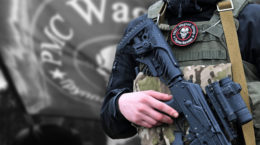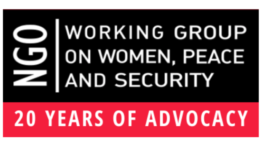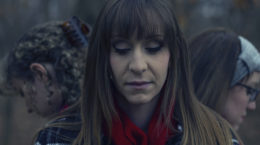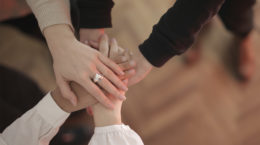Wartime reshapes society in profound and often devastating ways, disproportionately impacting women by undermining their agency, autonomy, and justice. This article explores the systematic objectification of women during conflict, the normalization of violence, their exclusion from decision-making processes, and the neglect of grassroots efforts led by women. Additionally, it provides actionable recommendations to address these critical issues, emphasizing the importance of feminist approaches to peacebuilding.

Systematic Objectification of Women During Wartime
War dehumanizes women by reducing their identity to functions that serve societal, familial, or state agendas. This systemic objectification manifests in several forms:
-
- Inspiration for Men’s Sacrifice: Women are expected to inspire men to fight, glorify their acts of violence, and validate their sacrifices. This role strips women of their individuality, framing them as tools of motivation rather than autonomous individuals with their own agency. The burden of emotionally supporting men, often at the cost of their well-being, becomes a societal expectation.
- Reproductive Roles: Women’s bodies are weaponized during wartime, with an emphasis on their role as bearers of future soldiers. This utilitarian view pressures women into motherhood under the guise of patriotism, marginalizing those who choose not to have children. Societies often stigmatize and vilify child-free women, reinforcing patriarchal norms and criminalizing personal choices.
- “Keeper of the Hearth”: The expectation for unwavering loyalty to men on the frontlines confines women to roles of emotional servitude. Divorce or separation becomes socially taboo, forcing women to endure unhappy or abusive relationships under the pretext of supporting their partners.
- Household Psychologists: Women are burdened with managing the psychological struggles of male soldiers and combatants, often without acknowledgment or support. This responsibility becomes particularly oppressive when men exhibit aggression or violence, yet societal norms dictate that women must provide unconditional care and understanding.
- Sexual Objectification: Wartime amplifies the objectification of women, reducing their value to their physical appearance or relationships with men. Women are praised or condemned based on their roles as the wife of a hero, the mother of a soldier, or other gendered labels. This pervasive objectification denies women their individuality and agency.
In essence, war transforms women from autonomous individuals into tools of the war effort, stripping them of their humanity and individuality.
The Spread of Violence and Exclusion
The normalization of violence during wartime creates a ripple effect that perpetuates systemic abuse and exclusion, particularly for women.
-
- Domestic Violence: The glorification of combatants and political prisoners as “heroes” of the war often silences victims of domestic violence. Women in such relationships are frequently pressured to tolerate abuse, as society excuses violent behavior stemming from PTSD or war-related trauma. This dynamic leaves women trapped in unsafe environments, with few avenues for support or recourse.
- Hostility Toward Refugee and Migrant Women: Women fleeing warzones, particularly from Belarus, Russia, and Ukraine, face unique challenges. These include physical aggression, psychological abuse, and targeted surveillance by intelligence agencies like the KGB and FSB. In exile, women human rights defenders often encounter heightened threats, compounded by inadequate support systems, leaving them isolated and vulnerable.
- Marginalization in Decision-Making: The militarization of masculinity sidelines women from political and societal leadership roles. Feminist voices advocating peace and gender sensitivity are often dismissed, suppressed, or misrepresented, perpetuating patriarchal power structures and militaristic narratives.
- Neglect of Grassroots Initiatives: Women activists, particularly those operating at the grassroots level, shoulder immense responsibilities, often filling gaps left by weakened state institutions. These efforts, while vital, are undervalued and unsupported, leading to widespread burnout among activists.
- Exclusion of War-Traumatized Women: Women who directly experience war-related trauma or repression frequently lack access to necessary mental health and social support. This neglect pushes them further into isolation, hindering their ability to contribute to community rebuilding and leadership.
The spread of violence and systemic exclusion during wartime perpetuates cycles of abuse and marginalization, creating a hostile environment for women both within and beyond conflict zones.
Recommendations for Addressing Wartime Injustice Against Women
The challenges faced by women during wartime demand targeted interventions that prioritize justice, inclusion, and equity. The following recommendations outline actionable strategies to address these systemic issues:
-
- Activate UN Resolution 1325: Governments and international organizations must implement UN Resolution 1325 to ensure women’s perspectives are included in peace and conflict resolution processes. Their exclusion perpetuates patriarchal structures and diminishes the effectiveness of peacebuilding efforts.
- Promote Disarmament and Combat Militarization: Advocating for disarmament and resisting the militarization of society, particularly among children, is essential. The glorification of violence in education and media instills dangerous militaristic norms in younger generations, perpetuating cycles of conflict.
- Support Marginalized Men: Men who reject militarized masculinity, such as conscientious objectors and deserters, need targeted support. Social reintegration programs can provide these individuals with the tools to rebuild their lives, promoting healing and breaking the cycle of violence.
- Address Trauma and Prevent Conflict: Comprehensive trauma support for combatants and their families is critical to breaking the cycle of violence. Tackling domestic violence, particularly in families of former combatants and political prisoners, should be prioritized through mental health initiatives and community support programs.
- Strengthen Grassroots Initiatives: Women-led grassroots organizations are essential for trauma recovery and long-term peacebuilding. These initiatives require increased funding, training, and institutional support to prevent burnout and ensure their sustainability.
- Amplify Feminist Narratives: Feminist approaches to peacebuilding offer a vital counterbalance to patriarchal militarism. Empowering feminist peacebuilders and amplifying their voices can foster resilience against radicalization and militarization, creating a more equitable foundation for peace.
Conclusion
Women are disproportionately affected by the dehumanizing forces of wartime, from systemic objectification to the spread of violence and exclusion. Addressing these challenges requires a multifaceted approach that uplifts women’s voices, supports grassroots efforts, and dismantles patriarchal power structures. By implementing inclusive policies and amplifying feminist perspectives, we can create a pathway toward justice, equity, and sustainable peace.
This vision demands a collective commitment to challenging militaristic narratives and empowering women as agents of change in the pursuit of a more peaceful and equitable world.
Olga Karach,
“Our House”
(Belarus)
In order for us to help others to protect their rights, we need your help. You can help here, click on any of the buttons on the left or right, and then repost the news, like it on our social networks here, here and here, or take part in the clean-up day.
Credits: unsplash










